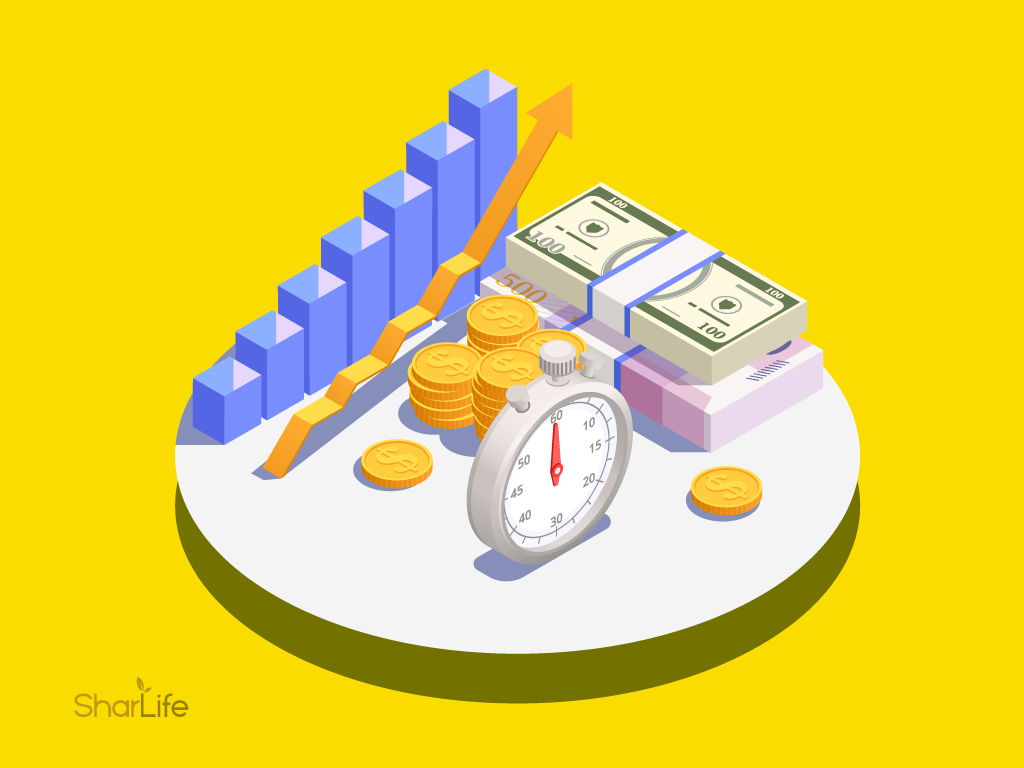Time Value of Money: Conventional vs Islamic

Does the concept of Time Value of Money (TVM) exist in the Islamic financial system? The concept of time value of money is the foundation of investment and the core fundamental principle of conventional financial theory. It is also a fundamental component of the monetary system. Islamic finance also adopts the concept of time value of money as well, however, from an Islamic perspective, the concept used in the time value of money differs from the conventional definition. What is the difference between the Islamic and conventional views on the concept of time value of money?
The Definition of Money
Before delving deeper into the topic of time value of money in conventional and Islamic perspectives, we must first understand the definition of money from both conventional and Islamic perspectives.
From conventional perspectives, money is viewed as:
- A commodity that is used as an exchange for other goods.
- A widely marketable good because it is highly in demand and highly valued. Thus, it is certain that it can be used at any time and anywhere.
- A portable physical currency. Money was created to make human life easier, therefore it is critical to ensure that it is convenient.
- A relatively imperishable currency. It is durable and can be used for future purchases.
- A relatively scarce and controlled currency because it is in high demand and has a high value, implying that it holds a high value in small quantities.
- A distinguishable and similar units' currency. This means they are easy to differentiate and evaluated.
- A physical commodity that is easy to divide and store.
Money, in addition to functioning as a medium of exchange and a store of value, is seen as a commodity. Therefore, money may be traded and sold at greater or lower prices than its face worth according to conventional perspective.
However, from the Islamic perspective,
- Money has no intrinsic value, which implies it can't be used to meet human needs directly. In Islam, money can only be used to buy products or services. It is not a commodity that can be utilised without first being traded for another.
- All units of money of the same denomination are equal to one another.
- In commodity transactions, the sale and purchase are affected by an identified and specific commodity.
- Money serves as a medium of exchange. It is a way to define the value of something but not itself.
- Money has a monetary value standard that determines the relative worth of various goods and services.
In Islamic concepts, money and commodities are different. Money is solely viewed as a medium of exchange and a unit of account, rather than a commodity, which is a shift from the conventional understanding. Therefore, according to Islamic law, money cannot be sold or traded for more or less than its intrinsic value.
As a result of the distinct concepts of money from both the conventional and Islamic views, both perspectives have different concepts of the time value of money.
The Time Value of Money Concept
Because Islam defines money differently from the conventional system, the time value of money in the Islamic perspective is entirely different from the conventional one. The time value of money is the basis for charging interest on capital in the conventional sense. However, the idea of positive time preference is acknowledged as the concept of the time value of money in the Islamic worldview.
The concept of positive time preference can be explained in two main situations:
- The opportunity cost of postponing current consumption. Current consumption brings more satisfaction than future consumption. Thus, compensation should be made for utility forgone today.
- The opportunity cost of being unable to invest funds in productive activities. The owner of funds gives up the possibility of earning a positive return on the funds.
Most jurists support the concept of positive time preferences. They agreed that prices for cash and credit sales could differ; for example, in installment sales, the credit price could be higher than the cash price, and another example is the Salam contract, where the price paid in advance for future delivery of goods is lower than the price in spot sales. However, Shari'ah principles do not clearly provide for, the consideration and ruling of the ideal time value of money calculation.
In short, the time value of money is acceptable in Islam for the pricing of assets and their usufruct, but it is not acceptable for any addition to the principal of loans or debts because the Shari'ah considers a loan to be a virtuous act from which no benefit can be derived. Therefore, no time value can be added to the principal of a loan or debt after it is created, or the purchaser's liability is stipulated.
Conclusion
Money's principal role in Islam is to enable transactions and serve as a means of exchange. Thus, Islam forbids making more money through the concept of the time value of money because it involves the element of interest (riba), which is forbidden in Islam. Furthermore, by utilizing the principle of interest (time value of money) to produce more money through lending activities, a person may easily get money without having skills or expertise. This results in a society that is full of greed, speculation, and immorality.